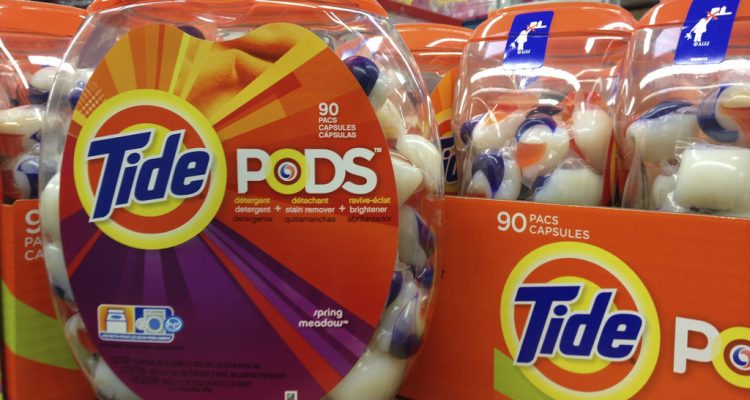Following the creation and subsequent social media phenomenon of the “Tide Pod Challenge” in December 2017, it now appears to be necessary to remind teenagers and young adults that consuming laundry detergent pods is dangerous. Starting as an innocent meme, otherwise understood on the internet as a joke that mocks a particular subject, Twitter users joked that the pods looked edible or delicious based on their vibrant colors. Unlike most memes that lose popularity after their 15 harmless minutes of attention, the Tide Pod jokes transformed into a challenge. People filmed themselves eating the pods and their subsequent reactions, according to Atlas Obscura. I am not the first person to say that the challenge is absurd and I am certain that I will not be the last. Even so, I think that there are several layers as to why young adults partake in the challenge. Although the reasons are not justifications for their actions, simply saying it is a “millennial problem” generalizes the broader issue.
The Tide Pod Challenge is not the first time that the internet created a dangerous online challenge. Existing for over a decade, the challenge that popularized to a greater extent in January 2012 is what most of us remember as the “Cinnamon Challenge.” According to The New York Times, the challenge had individuals “shoveling a spoonful of ground cinnamon into their mouths,” and then posting the video on YouTube. Unsurprisingly, the challenge also had life-threatening side effects. The American Association of Poison Control Centers received 178 calls in the first six months of 2012, versus 51 calls related to the challenge in the previous year, reported The New York Times. Although there is an evident difference in consuming ground cinnamon and doing the same with laundry detergent, the fundamental similarity is that it is largely done by younger people, and the aspect of age lends itself to the belief that young people view themselves as invincible.
The idea that young people consider themselves invincible is generally assumed to be a result of limited life experiences. However, there are more complex scientific explanations behind the theory. The Proceedings of the National Academy of Sciences published a study conducted by University College London and the Science Museum in London that studied how humans are more likely to incorporate good news into their personal beliefs and reject bad news. The hypothesis that was developed was that the human tendencies could be “an effect that may help explain seemingly irrational risk taking.” By studying 59 volunteers who ranged in age from nine to 26 — with females accounting for 33 of the volunteers — the researchers found that younger participants experienced greater difficulty adjusting their beliefs once they learned that an act is more dangerous than previously assumed.
The study stated, “Younger age was associated with inaccurate learning from information suggesting that the future is bleaker than expected, whereas the ability to learn from information suggesting that the future is brighter than expected was stable by comparison.” Since adults are found to be more capable of updating their perceptions as they learn “bad news,” the inference is that “adolescents can be especially resistant to warnings about danger.” The aforementioned results illustrate one of the possibilities for why young adults think the Tide Pod Challenge is a reasonable challenge to participate in. Although many young people would still grasp the concept that swallowing the detergent is a ludicrous and potentially life-threatening idea, there is still the lasting element that makes teenagers scoff and argue, “that could not happen to me.”
Nonetheless, there remains an overarching truth in the matter of the challenge and it is that personal accountability is crucial. The reality is that if someone chooses to swallow detergent, the repercussions are solely on the individual for not only consciously disregarding the warning label, but also ignoring the logic that dictates that there are health risks in consuming cleaning products.
Unfortunately, there are no clear solutions as to how to resolve issues such as these challenges. Regardless of parents ideally teaching children to not eat items that are used to clean clothes, internet culture lends itself to providing a larger audience to attention-seekers. Therefore, although it is a millennial and Generation Z issue since they are the primary users of social media, seeking attention predates even millennials. The difference is that with the advent of the internet, we have a broader platform to use in the hopes that we will one day achieve our viral status — even if it does require burning holes in our organs for that extra retweet.


Leave a Reply